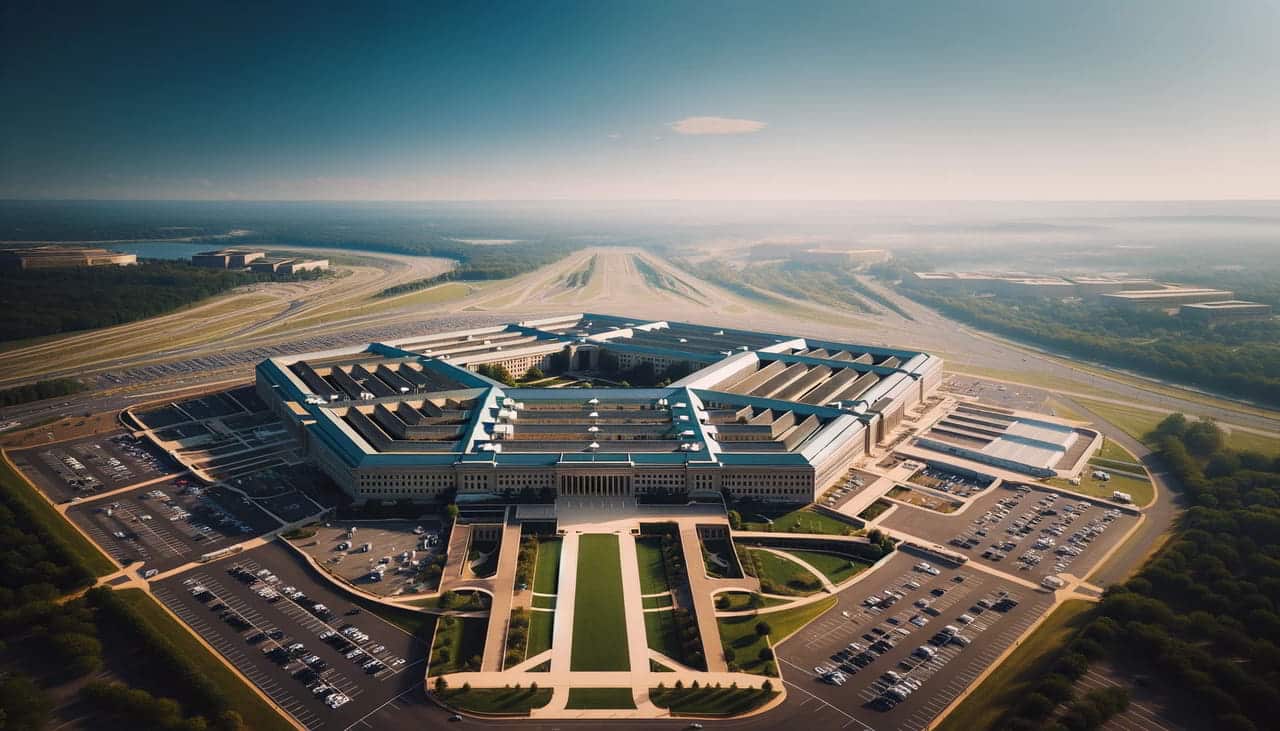In the realm of data infrastructure, one state stands out above all others: Virginia. With its robust network infrastructure, strategic geographic location, and government support, Virginia has emerged as the unrivaled data center capital of the United States. From Northern Virginia’s “Data Center Alley” to the state’s extensive fiber network and favorable business environment, the factors contributing to Virginia’s dominance in this industry are manifold.

Northern Virginia: A Hub of Data Innovation
Northern Virginia, particularly Loudoun County, has earned the moniker “Data Center Alley” for its concentration of data centers. This region alone boasts over 2,500 megawatts of commissioned power and encompasses popular data centers such as Amazon AWS, Equinix, and Rackspace. The strategic placement of these facilities within proximity to major urban centers like Washington, D.C., ensures optimal connectivity and accessibility.
Building a Network Infrastructure for Success
Virginia’s ascension to data center dominance didn’t happen overnight; it was the result of careful planning and investment in network infrastructure. Recognizing the symbiotic relationship between data centers and high-speed internet connectivity, the U.S. government laid the groundwork for Virginia’s data infrastructure decades ago. Through initiatives to develop fiber optic networks and establish global subsea cable connections, Virginia positioned itself as a gateway to the digital world.
Establishing the requisite technological infrastructure in Virginia enabled the U.S. government to effectively meet its networking requirements for Washington, D.C. and beyond.

Virginia: The Data Center Capital of the United States
In the United States, few places rival Virginia’s significance in the realm of data infrastructure. Often referred to as the data center capital of the country, Virginia’s strategic location, coupled with its robust network infrastructure and governmental presence, has solidified its position as a vital hub for data operations. From hosting federal agencies to supporting critical defense initiatives, Virginia’s role in shaping the nation’s data landscape cannot be overstated.
Virginia is home to a multitude of federal agencies, each playing a pivotal role in shaping national policies, defense strategies, and technological advancements, and each needing data center operations. Among these agencies, below are just a few:
- Defense Contract Management Agency (DCMA): Responsible for administering contracts for the Department of Defense (DoD) and other federal agencies, DCMA’s headquarters in Fort Gregg-Adams, Virginia, underscores the state’s importance in defense procurement and oversight.
- Central Intelligence Agency: The Central Intelligence Agency, known informally as the Agency and historically as the Company, is a civilian foreign intelligence service of the federal government of the United States, officially tasked with gathering, processing, and analyzing national security information from around the world, primarily through the use of human intelligence (HUMINT) and conducting covert action through its Directorate of Operations.
- National Credit Union Administration (NCUA): Ensuring the stability of credit unions across the nation, NCUA, based in Virginia, plays a crucial role in safeguarding the financial interests of millions of Americans.
- United States Patent and Trademark Office (USPTO): Serving as the national patent office and trademark registration authority, USPTO’s presence in Alexandria, Virginia, highlights the state’s significance in intellectual property rights.
- National Science Foundation (NSF): Supporting fundamental research and education in various scientific fields, NSF’s annual budget of approximately $9.9 billion underscores Virginia’s role in advancing scientific innovation.
- Defense Advanced Research Projects Agency (DARPA): Renowned for its groundbreaking technological advancements, DARPA’s contributions to fields such as GPS, drones, and the internet highlight Virginia’s position as a hub for cutting-edge research and development.
- Cybersecurity and Infrastructure Security Agency (CISA): Tasked with safeguarding the nation’s cybersecurity infrastructure, CISA’s initiatives in Virginia encompass a wide range of security measures, from securing elections to protecting against cyber threats.
- United States Marshals Service (USMS): As the oldest federal law enforcement agency, USMS’s presence in Virginia underscores the state’s role in upholding the rule of law and ensuring public safety.
- United States Air Force (USAF), Army (USA), Marine Corps (USMC), Navy (USN), and Department of Defense (DOD): With key installations located in Arlington, including the Pentagon, Virginia serves as a vital operational center for the various branches of the U.S. Armed Forces and the Department of Defense.
- Missile Defense Agency (MDA) and National Guard Bureau (NGB): Spearheading efforts in missile defense and National Guard administration, these agencies further enhance Virginia’s strategic importance in national defense.

Virginia’s Strategic Advantage: A Nexus of Innovation and Security
The nexus of data centers, fast network connections, cheap energy, and a technology trained workforce in Virginia is no coincidence but rather a strategic decision by central planners within the U.S. government. Its proximity to Washington D.C., coupled with a robust data center infrastructure, makes Virginia the data center capital of the U.S. and probably the world.
With a wealth of resources, including top-tier research institutions and a skilled workforce, Virginia continues to drive advancements in fields ranging from cybersecurity to aerospace engineering.
Subsea Cable Connections: Bridging Continents
Virginia’s significance in the global data landscape is further underscored by its role as a nexus for subsea cable connections. The SAEx, MAREA, BRUSA, and Dunant cables link Virginia Beach to key international destinations, facilitating high-speed data transmission across continents. These cables, owned and operated by tech giants and telecommunication companies, epitomize Virginia’s pivotal position in the global data exchange.

Cloud Providers and Tech Talent
Virginia hosts a diverse array of cloud providers, including industry titans like Amazon Web Services, Microsoft Azure, Oracle, and Google Cloud. The presence of these providers, coupled with Virginia’s robust network infrastructure, ensures seamless access to cloud services for businesses and individuals alike. Furthermore, Virginia’s investment in developing its technology workforce has cultivated a thriving tech industry, boasting the third-largest tech workforce in the nation.
Economic Impact and Energy Considerations
The proliferation of data centers in Virginia has had a profound economic impact, driving job creation and attracting investment to the state. However, this growth has also raised concerns about energy consumption and sustainability. Virginia’s average electricity rates are relatively low compared to the national average, making it an attractive location for energy-intensive industries like data centers. Yet, as data center energy consumption continues to rise, stakeholders must prioritize sustainability and explore renewable energy solutions.
Looking Ahead
As technology evolves and data demands increase, Virginia remains at the forefront of innovation in the data center industry. With its strategic location, robust infrastructure, and commitment to fostering a skilled workforce, Virginia is poised to maintain its status as the data center capital of the United States. By embracing sustainability, investing in renewable energy, and nurturing technological advancement, Virginia can continue to shape the future of data infrastructure on a global scale.
In conclusion, Virginia’s ascent to prominence in the data center industry is a testament to the power of strategic planning, infrastructure investment, and government support. From Northern Virginia’s bustling “Data Center Alley” to its extensive network of subsea cables and cloud providers, Virginia exemplifies the intersection of innovation and connectivity in the digital age. As the data landscape evolves, Virginia stands ready to lead the way forward, driving economic growth, technological advancement, and global connectivity for years to come.
FAQs about Virginia as the Data Center Capital of the United States
Why is Virginia considered the data center capital of the United States?
Virginia has been distinguished as the data center capital due to its robust network infrastructure, strategic geographic location, extensive fiber network, and government support, particularly in Northern Virginia’s “Data Center Alley”.
What role does Northern Virginia play in the data center industry?
Northern Virginia, especially Loudoun County, is home to a concentration of data centers like Amazon AWS, Equinix, and Rackspace, collectively known as “Data Center Alley”. This area alone boasts over 2,500 megawatts of commissioned power, providing optimal connectivity and accessibility due to its proximity to Washington, D.C.
How has the U.S. government contributed to Virginia’s prominence in data infrastructure?
The U.S. government has been instrumental by laying the groundwork decades ago with initiatives to develop fiber optic networks and global subsea cable connections, establishing Virginia as a key digital hub and gateway.
What federal agencies are based in Virginia and how do they utilize data centers?
Several federal agencies are based in Virginia, including the Defense Contract Management Agency, Central Intelligence Agency, and National Credit Union Administration, among others. These agencies utilize data center operations to support their functions in defense, intelligence, financial stability, and more.
What concerns surround the proliferation of data centers in Virginia?
While data centers have significantly contributed to job creation and economic growth, they have also raised concerns regarding energy consumption. Virginia’s stakeholders are urged to prioritize sustainability and explore renewable energy solutions to mitigate environmental impact.
- Hoth Therapeutics breakthrough! 🧬✨ Why one patient sent Hoth Therapeutics stock forecast soaring by 81% in a single day! - September 8, 2024
- BloomZ Stock Price Just Exploded! Here’s the scoop on their latest alliance and why investors are excited 💥 - September 8, 2024
- The 10-year Treasury rate chart shows a surprising twist… Did hedge funds miscalculate with their record shorts? 🤔 - September 8, 2024
💥 GET OUR LATEST CONTENT IN YOUR RSS FEED READER
We are entirely supported by readers like you. Thank you.🧡
This content is provided for informational purposes only and does not constitute financial, investment, tax or legal advice or a recommendation to buy any security or other financial asset. The content is general in nature and does not reflect any individual’s unique personal circumstances. The above content might not be suitable for your particular circumstances. Before making any financial decisions, you should strongly consider seeking advice from your own financial or investment advisor.











